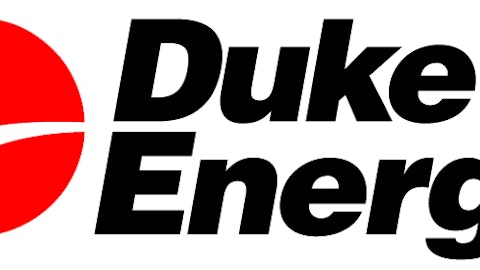Utilities have been switching up their energy portfolios at breakneck speeds, and nuclear is no exception. The investment costs can be crippling, but some companies still believe in this cheap fuel’s competitiveness. Here are two winners and three losers from the latest nuclear energy mix-up.
Nuclear notions
The latest good news for nuclear came this week, when Entergy Corporation (NYSE:ETR) announced that it had received a regulatory thumbs-up to continue running one of its units while the utility awaits longer-term approval.

The unit in question is one of two reactors generating 25% of New York City and Westchester County’s electricity. The Nuclear Regulatory Commission’s (NRC) decision hints at a positive regulatory future for the plant, but it also has larger implications for nuclear energy overall.
Nuclear energy is inundated with regulatory approval processes, and this temporary reprieve points to a more streamlined process for companies hoping to reinvest in nuclear. Entergy Corporation (NYSE:ETR) has already poured more than $1 billion into this modernization project, but expects to eventually receive a 20-year license renewal from the NRC.
NextEra Energy, Inc. (NYSE:NEE) surprised investors and itself when, after a five-year multi-billion-dollar nuclear modernization project, it flipped the switch on its renovated units and discovered 100 MW of additional unexpected capacity. The project had been expected to yield 400 MW, but the final number clocked in at 500 MW with around $100 million in annual efficiency savings. NextEra Energy, Inc. (NYSE:NEE)’s Florida Power & Light president, Eric Silagy, noted:
With consistently low fuel costs, zero emissions and the ability to operate around the clock, nuclear power is a critical component of our state’s energy mix today and tomorrow. By increasing the amount of power that our nuclear plants can generate, this investment added the equivalent of a new, medium-sized power plant to Florida’s generation fleet, without having to build one.
Negative on nuclear
One of the biggest blows to nuclear came in June when Edison International (NYSE:EIX) announced the early retirement of two California nuclear units. The impetus for the exit came from a generator leak that had kept the plants off-line since January 2012. Not only did the decision cost Edison International (NYSE:EIX) more than $300 million in post-tax damages, it also put 1,100 workers out of a job.
Given high costs and a risky regulatory environment, the utility probably made the right choice at the time. But if the NRC’s latest Entergy Corporation (NYSE:ETR) approval is any evidence, regulators may be more willing to let up a little to avoid another Edison International (NYSE:EIX) exit.
But for utilities that haven’t yet made their nuclear investments, some are opting out before it’s too late. Duke Energy Corp (NYSE:DUK) had previously planned to build a massive $24.7 billion Florida plant, but announced earlier this month that it would be backing off its original idea. The utility cited delays by the NRC in issuing new licenses, as well as state-level legislative changes. Duke Energy Corp (NYSE:DUK) will be looking increasingly toward natural gas to fuel its future, but will keep nuclear plans on the back burner in case opportunities arise.
Can nuclear still cut it?
Utilities are used to navigating regulatory waters, but increasingly volatile energy prices have made long-term investments riskier and potentially much less lucrative. The NRC seems to be making some moves to push projects through at a faster rate, but antsy energy companies can’t stand the wait.
For long-term investors, the most important point to consider is diversity. As your utility picks its future energy portfolio, will it survive if nuclear thrives and natural gas dies? And vice versa? Diversity should be just as important to utilities as it is to your own portfolio, and wise investors will make their nuclear picks accordingly.
The article 4 Dividend Stocks Divided on Nuclear originally appeared on Fool.com and is written by Justin Loiseau.
Fool contributor Justin Loiseau has no position in any stocks mentioned. You can follow him on Twitter @TMFJLo and on Motley Fool CAPS @TMFJLo.The Motley Fool has no position in any of the stocks mentioned.
Copyright © 1995 – 2013 The Motley Fool, LLC. All rights reserved. The Motley Fool has a disclosure policy.





